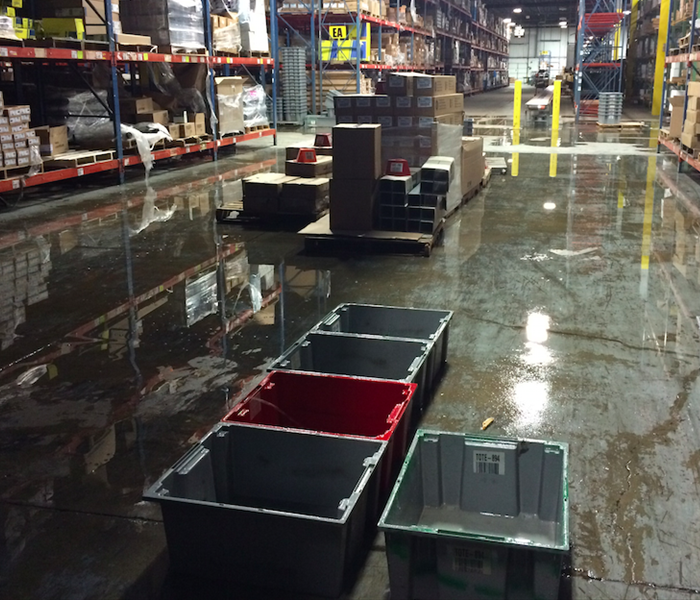Wind and Flood Damage….A Coastal Property’s Enemy on Cape Cod
10/2/2015 (Permalink)
Nothing strikes fear into the heart of a property owner on the Cape and Islands like the words, Hurricane or Tropical Storm. Sure, we have lived through some significant storms—everyone remember Hurricane Bob?— and perhaps that is why we take it seriously when predictions about a hurricane or tropical storm begin to surface. Even if the storm doesn’t live up to the hype of weather forecasters, we know that these storms are likely going to include wind, rain, and flooding and those elements can do significant damage to coastal properties….whether those properties are located close to the water or a bit further inland. All homes and businesses are vulnerable to the damage that rain, wind, and flooding can cause but ironically many property owners are not aware of the damages that can occur, how to respond to those damages, and what is even covered under their insurance policies.
There are two types of water damage?
Yes, there are two ways that water can get into your home—from the top and from the bottom. If it infiltrates the home from the roof, usually because of faulty shingles or gutters that were not cleaned, it is definitely an inconvenience but, fortunately, it is usually covered under your insurance policy. If it enters from the basement, it is called groundwater infiltration and this type of water damage is most likely not going to be covered by your insurance policy. But make no mistake about it, the damage needs to be cleaned up as soon as possible. If the basement is unfinished, and by unfinished, I mean concrete floors and walls with no drywall, framing, insulated walls, or carpeting and the water level is low—less than an inch—you can probably handle the clean up yourself. Start by turning off the power in that area—remember electricity and water are a bad combination, so be sure you know what you are doing—then prop up any items or boxes off the floor to mitigate further damage. Hint: if any of the boxes are cardboard, replace them with plastic bins. Even if the cardboard did not get wet, the material is a source of food for mold and wet cardboard is considered mold’s Thanksgiving Day. Remove the standing water by mopping it up, pushing it out with a broom or using a sump pump. If you have fans, bring those in to circulate the air and dry out the space. Hint: If there is any evidence of mold, do not use the fans since this will spread the spores. If the water level in the unfinished basement can be measured in inches or if the basement is a finished room to any degree, you need to call in a professional. The water remediation professionals at SERVPRO of Upper Cape Cod & The Islands have the knowledge, experience, and equipment to make it, “Like it never even happened.”
Hot tip #1: If the water level can be measured in feet, you definitely need to call in a professional, immediately. When a high volume of water is pumped outside at a high rate of speed, it may cause significant structural damage.
Wind can cause a variety of damages…from sending furniture and other debris into the air, crashing into windows, to knocking trees onto roofs, to ripping shingles up from the roof. The biggest misconception that property owners have about wind damage pertains to their insurance deductible. Most property owners believe that the deductible or amount that they will have to pay is based on the cost of the damage; however the deductible is actually based on the percentage of the total value for which the home is insured.
Any damage caused by the wind should immediately be addressed. A broken window should be boarded up from the outside and any hole in the roof should be covered—from the outside!—with a tarp. Yes, we actually responded to a damage where the tarp used to protect the roof was secured from the inside and not the outside—providing a nice area for rain to collect causing the tarp to collapse inside the structure. If you are unsure of how to properly secure your home or reluctant to head up to the roof, contact the professionals at SERVPRO of Upper Cape Cod and The Islands, who can begin the process of making it, “Like it never even happened.”
Hot tip #2: Take notice of the trees around your property. If a tree’s root system does not seem sound or strong or there appears to be some erosion, consult an expert. Remove any branches that are hanging close to the roof or whose width is not relative to the height of the tree.
5 things to do before the storm arrives:
4 things to do…and not to do… after a damage
Check on neighbors—especially the elderly—to make sure they are safe.





 24/7 Emergency Service
24/7 Emergency Service